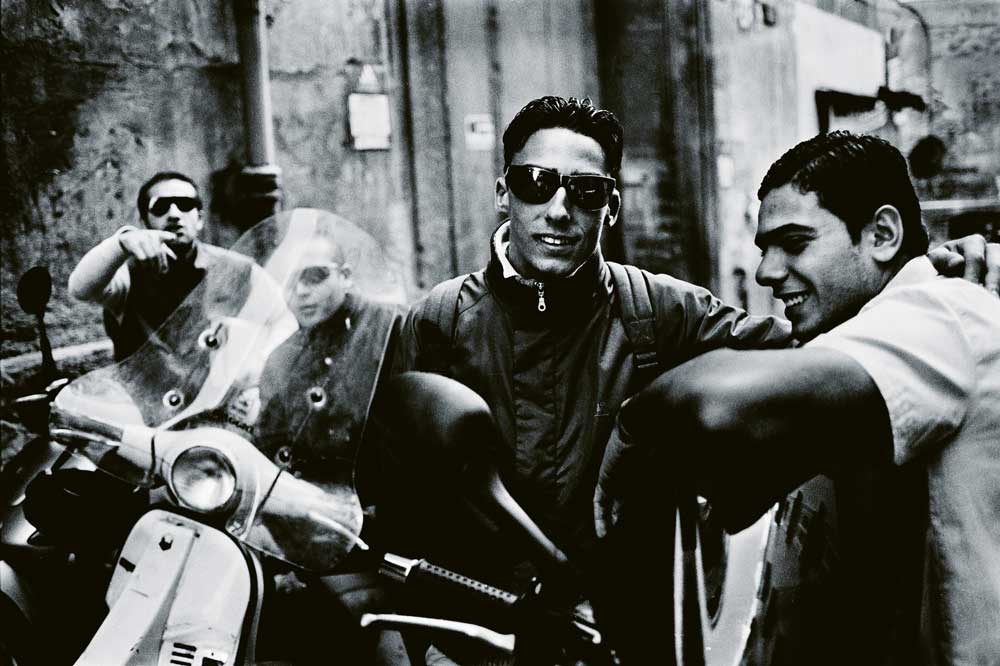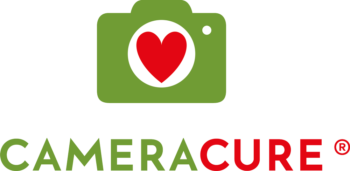Task 41 – Believe what you want to see
Task 41
Believe what you want to see

Naples, Italy, 2000. Photo: Torkil Færø
Problem
The nocebo effect – expecting failure
The brain is a machine that creates predictions. These expectations have a tendency to become real. If we expect a negative result, as a rule we will get it. Reading the patient infor- mation leaflet about side effects will increase the chances of getting them. The nocebo effect is the opposite of the more known placebo effect, but is just as effective. Just as you can believe yourself better, you can believe yourself worse.
When a rally driver loses his grip on a turn, he knows that he has to look where he wants to go and not where he is afraid of ending up. If he doesn’t manage to do this, he can more easily end up in the ditch or mountain wall. This is how it is with all of us. When we use a lot of energy thinking about what we don’t want to happen, we often get exactly that, because we then have less attention available to focus on what we want. Our brain gives more of what we focus on regardless of whether it is positive or negative.
Heavy thoughts and the fear of insomnia are good examples. Many patients say that when they go to bed, they concentrate on not becoming anxious. Such strategies work badly. We only attract more of what we don’t want. In this instance, it is better to work on becoming calm and to tell ourselves that it isn’t so dangerous if we don’t get to sleep. We can rather imagine that we are lying on a beach listening to the soothing sound of the waves.
Many youths come to my doctor’s office and feel powerless. They are anxious about developing chronic fatigue syndrome from not being able to perform at school and failing in life. Thoughts and worries make them tired and anxious. Many end up missing a lot of school, which is exactly what they were afraid of. The solution can be to fix their sights on what they want rather than what they don’t want. Here, photography has an obvious strength. We auto- matically aim for what we want and what we think we can get a hold of. This approach will spread to everything that we do.
On a scale of 1 to 6, how relevant is this issue for you?:
Solution
The placebo effect – believing that things will turn out well
”I often say that something is strong medicine. Then it works much better”. This advice from my first General Practitioner supervisor has been invaluable. A great deal of the effects of medicine lies in the placebo effect. This is especially true for medications for mental conditions and states of pain, as well as all medications in general and even surgical procedures. If you think that you are getting something that works, it will work much better. It is no coincidence that people often feel better after going to the doctor. Our bodies have already reacted expectantly to a health-promoting measure and have released beneficial hormones.
As a photographer, it wouldn’t strike you to point your camera at something you don’t want to have, something you don’t want to photograph. Thus, we become accustomed to make pleasure-based and not fear-based choices. With a camera in our hands, we sniff aro- und the next corner or turn to look for something we may want to take a picture of. This men- tality infects our daily lives imperceptibly.
Prayer is a central part of every religion. A person asks for what he or she wants. This has survived in religion because it works. Ask and you shall receive, search and you shall find. The main effect of it is to direct our sights towards what we want and to express a clear wish to have it. The brain receives a task that the subconscious works with. It will come up with ideas and make you aware of new opportunities.
As photographers we go out, as if it was the most natural thing in the world, to hunt for interesting subjects. We do not have any of our attention directed towards what we don’t want to capture. Thus, we automatically train ourselves to have a constructive mindset. The greater belief you have about being able to get a good picture the more you increase your chances to succeed. The placebo effect also works within photography.
PHOTO ASSIGNMENT:
What do you want to photograph today?
Visualize what you want to find and believe that you will.
It is not certain that you will find it, but you increase your chances with this kind of attitude.
On a scale of 1 to 6, how useful was this task for you?:
BOOK SUGGESTION: You Are The Placebo by Joe Dispenza
❞ If you think you can or think you can’t, you are right.
Henry Ford
❞ We choose our joys and sorrows long before we experience them.
Khalil Gibran
❞What you focus on expands.
Oprah Winfrey
❞The world only exists in your eyes. You can make it as big or as small as you want.
F. Scott Fitzgerald
[note_editor]

